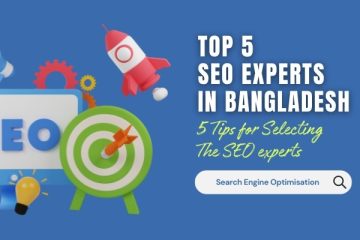Introduction
Congratulations! Your business is booming. You have a strong local presence, loyal customers and are now looking to expand your reach. However, with growth comes the problem of maintaining and even increasing your online visibility. This is where Search Engine Optimization (SEO) becomes essential.
This article delves into how you can scale your SEO efforts effectively to ensure that your brand remains visible as your business expands. We will also discuss strategies, common challenges, insights and tips on how to undertake an easy transition.
Why Scale Your SEO for Growth?
Think of SEO as the very base of your online existence. A well-optimized site draws organic traffic which forms the lifeline of any growing enterprise. As you grow, so does your target audience too. Scaling your SEO therefore ensures that you continue being relevant in a wider search landscape thus attracting new clients while remaining visible to existing ones.
Challenges Involved in Scaling SEO
Scaling up has its own obstacles when it comes to SEO.A few of such challenges are;
Increased Keyword Competition: As you broaden your focus on more people, you are bound to face stiffer competition over high-volume keywords.
Content Management: The more the website develops; it will be requiring higher quality content that is more specific.
Technical SEO Complexity: Increasingly large websites can generate technical SEO problems that could unintentionally affect rankings.
Local vs National Focus: When targeting both local and national markets one must strike a balance hence careful planning is needed.
Strategies for Scaling SEO Efforts
Don’t let these challenges put you off track; here’s a comprehensive approach towards scaling up your company’s SEO for sustainable growth:
1.Keyword Research: Expand Your Perspectives
While it would still be necessary to consider local terms, look beyond their boundaries by investigating into national phrases common among the expanding clientele. Use tools like Google keyword planner or SEMrush for getting highly searched keywords with commercial intent but less competition.
2.Content Strategy: Reach a Broader Audience
Change your content strategy to have a wider reach. This could include:
Creating pillar content: Generate well researched, expertly authored articles that showcase you as the authority in your industry.
Topic clusters: Group related articles around pillar content, creating a comprehensive information hub for users.
Location-specific content: Develop contents that are specifically aimed at certain areas within your national reach and maintain local relevance.
3.Technical SEO: A Strong Foundation
Technical SEO gains greater importance as your website grows. Pay attention to the following:
Website speed
Ensure that your website loads quickly on all devices. Through tools such as Google’s pagespeed insights, a few areas can be identified for enhancement.
Mobile-friendliness
Seamless user experience is only possible through mobile responsive websites.
Structured data implementation
Use schema markup to help search engines understand more about your content.
4.Link Building: Extension of Your Reach
Link building forms an important part of good SEO. Here are some ways to widen your link-building efforts:
Guest blogging
Offer high-quality posts to relevant sites within your sector.
Broken link building
Look for broken links on reputable sites and propose replacement content if it suits the context of the page.
Industry awards and recognition
Be proactive in chasing industry awards and participate in online communities where they are presented so that you build natural backlinks.
5.Local SEO Optimization (Maintain Focus)
Even with nationwide targeting, local SEO is still important. To keep up strong local presence, do as follows:
Claim and Optimize Your Google My Business Listing; ensure that you represent accurate information by providing necessary updates.
Online review control
Foster optimistic feedbacks from the internet and respond promptly to both negative and positive feedbacks.
Local citations
Place your business on relevant online directories and local business listings.
6. SEO Analytics: Check Your Progress
Google Search Console or Ahrefs can be used for constant check of how your SEO is performing. Track keyword rankings, website traffic sources, user engagement metrics. Use this data to refine your strategy and identify areas for improvement.
7. Consider an SEO Agency (For Additional Support)
Scaling SEO in-house can be difficult especially for small businesses with limited resources. Partnering with a best rated SEO agency such as SEO Nestor (assuming they are located in the Bronx and have a good reputation) will provide you with the necessary skills and tools that will make sure your goals are being met when it comes to search engine optimization.
Conclusion: Scaling SEO for Sustainable Growth
Scaling SEO is not a one-time event but an ongoing process that requires adaptation and continuous improvement. Implementing the strategies discussed above will help keep your brand visible amidst ever-changing search landscape. Remember, SEO is not a sprint but rather a marathon.
Through commitment and data-driven strategies, you’ll scale up on your SEO efforts thus taking your business to another level entirely.




